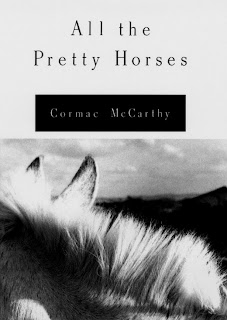As I Lay Dying, by William Faulkner is the story of the journey to fulfill a mother and wife’s wish: to be buried next to her father in her home town. Faulkner wrote the story of the Bundren family in the perspective of multiple characters, from neighbors to family members to even the dead mother herself. It is a difficult read due to the fact that it is not a typical narrative; it is written in stream of consciousness writing. This simply means the characters are literally speaking their mind, leaving no thought unaccounted for. As the family takes the journey to bury Addie, each character’s reaction to her death is addressed. Her children, Cash, Darl, Dewey Dell, Vardaman, and Jewel, as well as her husband, Anse, react differently to her death.
Anse was always a self-centered, lazy husband. He even claims he cannot sweat because if he does, he will die. This prevents him from doing any labor, especially in the sun. When Addie learned of her second pregnancy with Darl, she asked Anse to take her to Jefferson, her home town, to be buried with her father once she died. This was one of the only things he ever did for his wife.
Jewel is the driving force behind the trip. His mother loved him a lot, even though he is an illegitimate child. Jewel loves Addie and speaks his love for his mother through actions. He seems to have a lot of trouble with Darl as a reaction to his mother’s death.
Darl, on the other hand, seems to have gotten no love from his mother. He also believes that he doesn’t truly exist. He reasons that Jewel exists and they have the same mother; therefore, he must exist as well. He spends a lot of the trip trying to get into Jewel’s mind because, if he succeeds, he must then exist since Jewel does. He bothers Jewel a lot and is basically the saboteur of the trip.
Dewey Dell must cope with now being the only girl in the family of five boys. On top of this, she also struggles with being pregnant at the age of seventeen. She does her best to hide it from her family and tries to get an abortion on two occasions when they get into town. Cash, the oldest, seems to throw himself into his work due to his mother’s death. He does a lot of carpentry, including building Addie’s coffin. Vardaman, the youngest by many years, really doesn’t understand much of what is going on. One day, he sees a dead fish and therefore deduces that his “…mother is a fish” (84). Also, because he is so young, he believes there should be holes in his mother’s coffin so she can breathe.
The Bundren family struggles over the course of the ten day trip to Jefferson to bury Addie. They stay overnight at friends’ houses and even get aggravated with each other. They lose their mules to drowning and Jewel sells his beloved horse to obtain more mules. By the end of the novel, they reach Jefferson and I saw no indication of the burial of Addie. The book ends with Anse leaving his family and coming back with a new wife as well as new teeth for himself.
Questions:
1) Everyone in the Bundren family reacts differently to Addie’s death. How would you feel/react if one of your parents, or a loved one, passed away? How would this differ from your sibling’s, or friend’s, reactions?
2) Brothers Darl and Jewel have a lot of tension between them due to how their mother views them. Do you have any tension with your siblings or friends that is difficult to deal with?
3) Dewey Dell is pregnant at the age of seventeen and doesn’t know what to do. She tries to hide this from her family and deal with it on her own. Have you ever had a problem that was difficult for you to deal with on your own? What did you do?




